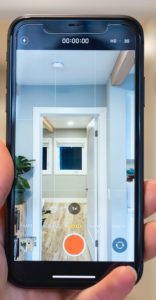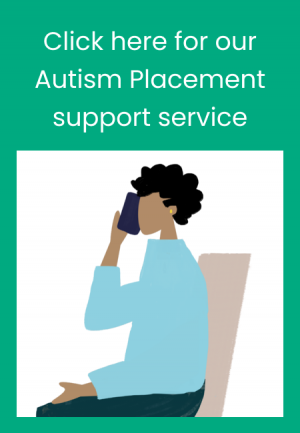This ‘accessible house-hunting guide’ offers tips and suggestions whether you’re looking for physical or neurodiverse conditions.
Planning to start the search for your perfect accessible home soon? If so, here’s a look at how to tackle house-hunting while keeping accessibility at the forefront.

Before You Search
If this is your first time buying a home, there are several steps you should take before you begin your house hunt. First, you should find a trustworthy estate agent who can help you navigate your housing market. The right agent can make or break your house-hunting efforts, so finding someone you can trust and communicate with easily is an extremely important step.
You should also reach out to your lender to figure out your financing options. Depending on how much money you have saved up for a down payment, you’ll likely have a few different types of mortgages you can choose from. Be sure to ask plenty of questions and determine what’s affordable before deciding on a particular type of loan — many homeowners wind up with a loan agreement they don’t fully understand and regret it down the line.
Finally, it’s never too early to start making preliminary plans for how you’ll handle the move once you find your home. For example, you might want to start looking into moving services in your area or going over your lease to make sure you know your obligations as far as your current space is concerned. There’s a fair amount of prep work you can get done ahead of time — once you have the full workload of moving on your plate, you’ll be glad you already knocked some tasks out.

Determining What You’re Looking For
One of the most important parts of any house hunt is determining your wants and needs lists. For people with disabilities, the needs list is often of the utmost importance. Take some time to write down any accessibility features you’ll need in a home. You should especially note things that would be relatively difficult — and sometimes, impossible — to change, such as hallway width.
It’s always wise to talk to your doctor, physical therapist, or local disability services when coming up with this process. Although you know your abilities better than anyone else, they may have some insight into features you’re not familiar with or hadn’t considered. It’s also worthwhile to ask around in your disability community to get a sense of which house features have and haven’t worked for others with your disability.
Remember, being open to small modifications such as ramp installation can open your options up significantly. Consider getting in touch with a contractor who specializes in accessible modifications in order to get some insight into cost and feasibility for any particular change a property might need.

Tours, Viewings, and Open Houses
When it comes to touring potential homes, your estate agent is your ultimate ally. They’ll be the ones to set your appointments up and your connection as far as getting a sense of how accessible the home will be for you when you arrive. Make sure you give your agent a very clear picture of what you can and cannot navigate so that they can convey this information to sellers with confidence. If the home isn’t accessible (but could be with some small modifications) a virtual tour can also be a good way to get a first look.
House-hunting with a disability can be an intimidating process, but don’t let that keep you from finding your dream home. You deserve to find a property where you can be safe, comfortable, and happy. We hope these tips help you find the dream home you’re hoping for!
Editor’s note
Our readers might also be interested in the articles below
- The Home Accessibility Checklist by UDS Foundation
https://udservices.org/blog/home-accessibility-checklist/
- Lifts and Other Home Adjustments for Disabled Individuals by Nationwide Lifts
https://www.elevators.com/lifts-and-other-home-adjustments-for-disabled-individuals/
- For ideas on home modifications for young people with special needs
- For our readers in the United States the two articles below on remodeling a home for people with disabilities by TheFrugalRoom and also accessibillity in an eco-friendly home by EcoWatch might be of interest
Building and Designing Eco-Friendly Homes for People With Disabilities
_________________________________________
If you need help looking for services for an individual with an autism spectrum condition, we will do our best to help. Click below for the Autism Placement Support Service.



